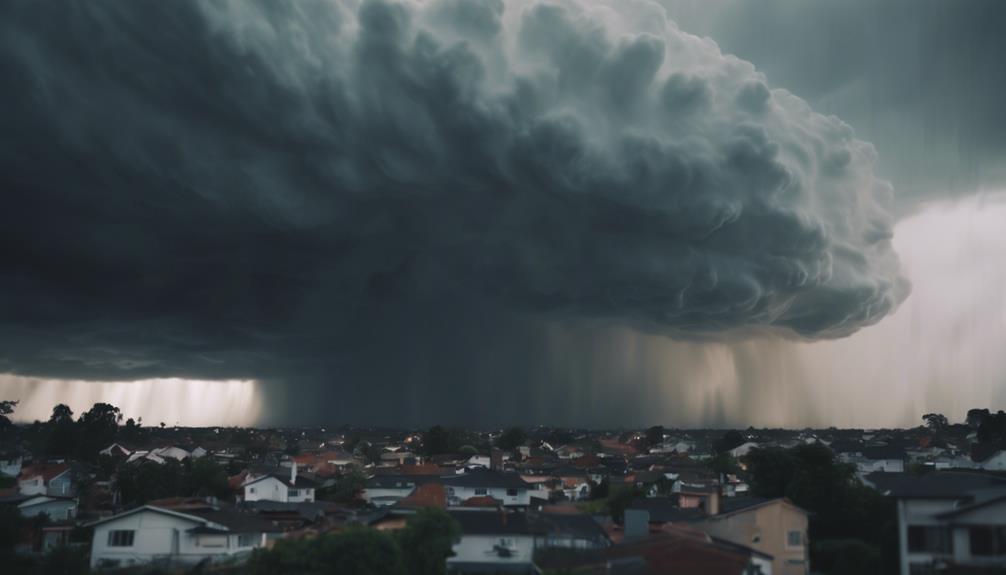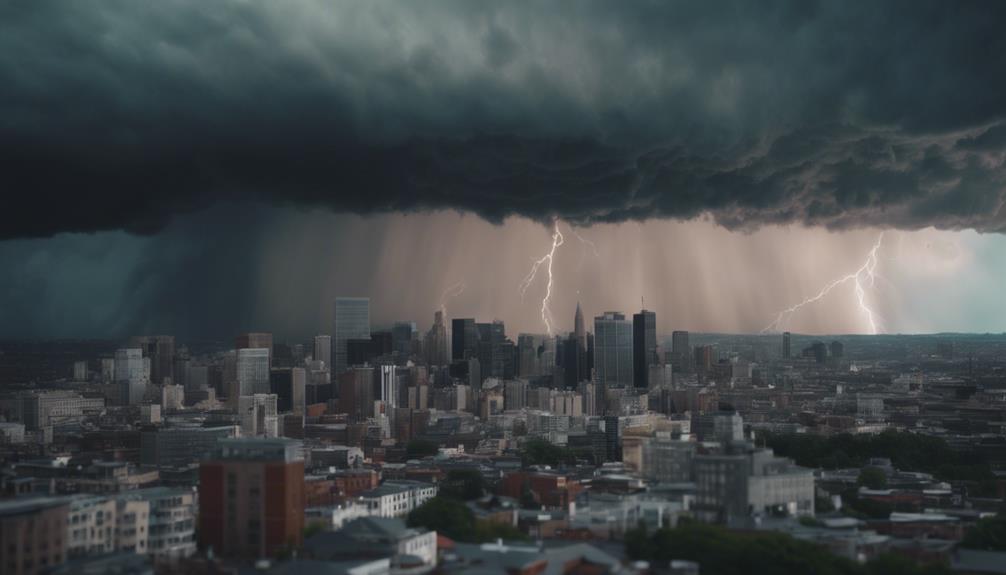In the chaos of natural disasters, disinformation's harm is revealed, spreading mistrust, confusion, and impeding crucial response operations. False narratives swiftly exploit the chaos, sowing seeds of doubt and undermining trust in official communications. Social media amplifies these falsehoods, making combating them essential to protect communities. Misinformation can lead to fear and lack of preparedness, hindering effective disaster management. To combat this, verifying information before sharing is key. Learn more about the impact and importance of combating disinformation during natural disasters for safeguarding communities and promoting trust.
Key Takeaways
- Misinformation exacerbates distrust and confusion during natural disasters.
- False narratives spread quickly, eroding public trust in official sources.
- Social media amplifies the dissemination of misleading content during crises.
- Fact-checking agencies are vital in combatting false information in disasters.
- Upholding media credibility through accurate information is essential for public trust.
Amplification of Disinformation

During natural disasters, the amplification of disinformation intensifies distrust in public institutions and media. False narratives spread like wildfire, exploiting the chaos and uncertainty of the situation.
Misleading information finds fertile ground to flourish, causing confusion and hindering response efforts. The rapid dissemination of fake news erodes public trust, leading to skepticism towards official sources.
Social media anonymity further fuels the proliferation of misinformation, making it challenging to distinguish fact from fiction. As disinformation thrives amidst crises, it becomes essential to combat these falsehoods effectively.
Fact-checking agencies play a pivotal role in verifying information accuracy, countering the spread of fake news, and upholding the credibility of media sources during these turbulent times.
Impact on Public Perception
The amplification of disinformation in natural disasters greatly shapes public perception, influencing trust and belief in information sources. When false narratives flood the media, it erodes the public's confidence in official statements and reliable news outlets. This skepticism can lead to confusion, fear, and a lack of preparedness during subsequent crises. Below is a table highlighting the key impacts of disinformation on public perception:
| Impact of Disinformation on Public Perception | |
|---|---|
| Decreased Trust | Rising Fear and Confusion |
| Misinformation undermines belief in authorities | False narratives create uncertainty and panic |
| Increased Skepticism | Diminished Preparedness |
| Public becomes wary of information sources | Lack of trust hinders readiness for disasters |
Role of Social Media

Amid natural disasters, social media platforms serve as prominent conduits for the rapid dissemination of disinformation. During crises, individuals often turn to social media for real-time updates and information sharing. However, the speed at which information spreads on these platforms can also facilitate the circulation of false or misleading content.
Fake news, rumors, and manipulated images can easily go viral, leading to confusion and hindering emergency response efforts. The anonymity provided by social networks further complicates the situation, allowing misinformation to thrive unchecked.
As a user, it's essential to be vigilant and verify information before sharing it to help combat the spread of disinformation during natural disasters.
Combating Misinformation
To combat misinformation effectively during natural disasters, prioritizing fact-checking agencies' role is essential. These agencies play a crucial part in verifying information accuracy and preventing the spread of false narratives. By collaborating with news verification organizations, they uphold media credibility and provide the public with reliable data. Fact-checking agencies contribute significantly to crisis communication strategies, ensuring that accurate information is disseminated to the public promptly.
| Role of Fact-Checking Agencies | Importance |
|---|---|
| Verify information accuracy | Shield against false narratives during crises |
| Collaborate with news verification organizations | Provide verified data to curb misleading content |
| Uphold media credibility | Enhance information precision through digital verification |
| Contribute to effective crisis communication strategies | Promote accurate information for crisis management |
Importance of Fact-Checking

Fact-checking agencies play an essential role in countering false narratives and ensuring the accuracy of information during natural disasters. Here's why you should value their work:
- Reliable Information:
Fact-checking agencies verify data to provide you with accurate information, helping you make informed decisions.
- Public Trust:
By upholding media credibility, these agencies contribute to maintaining public trust in the midst of chaos and uncertainty.
- Preventing Misleading Content:
Their expertise in digital verification aids in curbing the spread of misleading content, safeguarding you from falling victim to misinformation.
Frequently Asked Questions
How Do Disinformation Campaigns Target Vulnerable Populations During Disasters?
During disasters, disinformation campaigns target vulnerable populations by exploiting uncertainty. Fake news spreads rapidly, magnifying distrust in institutions and media. Fact-checking agencies play an essential role in countering false narratives, ensuring accurate information reaches the public.
What Strategies Can Rebuild Public Trust in Institutions Post-Disaster Disinformation?
To rebuild public trust post-disaster disinformation, stay vigilant against fake news, support fact-checking agencies' efforts, and demand accountability from institutions. Verify information sources, advocate for transparency, and actively combat misinformation for credibility restoration.
How Do Social Media Algorithms Contribute to Disinformation Propagation?
Explore how social media algorithms fuel disinformation spread. Their design prioritizes engagement over accuracy, amplifying misleading content. Users unwittingly share false information due to algorithm bias. Stay vigilant to combat misinformation effectively.
What Innovative Technologies Aid Fact-Checking Agencies in Combating Misinformation?
Innovative technologies like AI and blockchain aid fact-checking agencies in combating misinformation. They enhance verification speed and accuracy, assisting in curbing false narratives during crises. Embrace these tools to strengthen your fight against fake news.
Can Fact-Checking Agencies Collaborate With Governments to Enhance Crisis Communication?
You'll be surprised to know that fact-checking agencies can collaborate with governments to enhance crisis communication. Together, they guarantee accurate information dissemination, bolster public trust, and combat the spread of misinformation effectively during disasters.
Conclusion
As the storm of disinformation rages on in the wake of natural disasters, fact-checking agencies stand as lighthouses guiding you through the tumultuous sea of deceit. Their vigilant efforts illuminate the path to truth, cutting through the fog of uncertainty and misinformation.
Like beacons in the night, they provide a steady beacon of light in the darkness, ensuring that you navigate the treacherous waters with clarity and confidence. Trust in their guidance, and you'll weather the storm unscathed.









